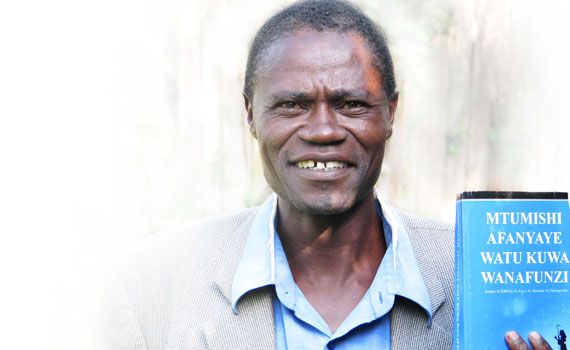Kenyan pastor Daniel Wanzala was in trouble. The leaders of his denomination were not happy with the reports they’d been hearing about his church. So they summoned him to explain.
It all began when Pastor Daniel attended a leadership conference in the town of Kitale, taught by David Servant. What he heard that day was difficult for him to accept, because it contradicted some of his own beliefs and practices. Yet it had all been backed up with Scripture. So he faced a dilemma: Would he cling to his tradition or submit to the truth of God’s Word?
At the close of the conference Daniel was given a book entitled The Disciple-Making Minister. He took it home and began reading it while searching the Scriptures. He found everything written in the book to be an exposition of what is written in the Bible. Still, he struggled, so he decided to ask the opinion of his bishop. Are so-called “carnal Christians” not really Christians at all? Can only ordained leaders speak at a church service, and can only they baptize new converts? Can the Lord’s Supper be celebrated only in church buildings? Daniel asked many questions. His bishop offered standard answers and told Daniel that he risked expulsion from the denomination if he tried to implement such “crazy” teachings in his church.
Daniel was not satisfied. So he asked his church elders to read the book with him to see if they could find anything contrary to God’s Word. In their sincere search for truth, they were changed. They submitted to Christ’s lordship. They began to realize that, rather than inviting unsaved people to come to church to hear the gospel, they should be taking the gospel to the unsaved and planting churches in the homes of those who believed. The concept of the New Testament, disciple-making church became clear to their minds. It would no longer be “business as usual” at their church.
The elders resolved to lead by example. They started discipleship groups in their homes where everyone could participate and where the Lord’s Supper was a shared meal. They began to see people repent and believe the gospel. Some were healed of sicknesses. The groups multiplied and church attendance began to swell. Daniel’s church grew so much that, at the end of last year, each elder committed to move to different parts of their province to plant new churches in their homes. Today Daniel oversees 23 home fellowships.
Seeing the undeniable fruit, Daniel’s bishop has told him to keep on doing what he’s doing to fill his church. Daniel is happy to comply, since his heart has been transformed. His passion has changed from filling pews to filling the kingdom of God.





